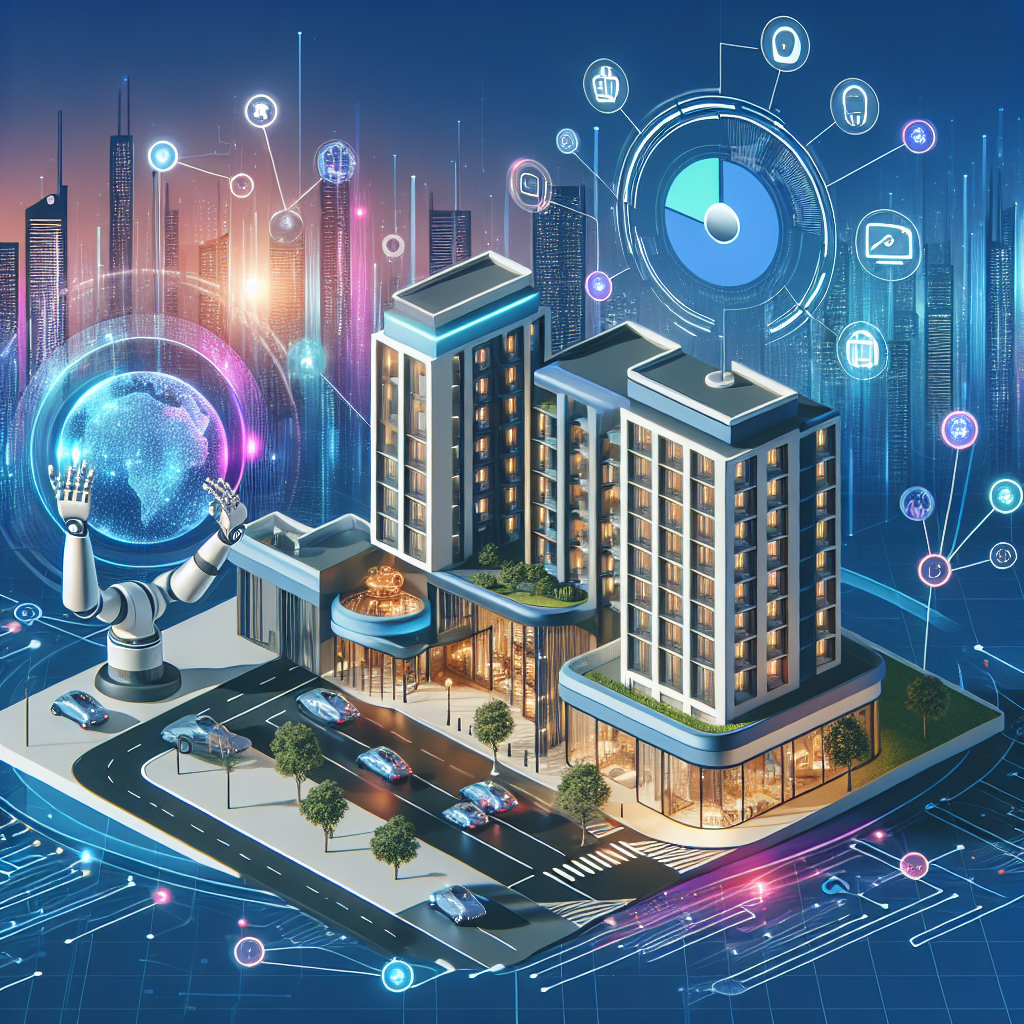In recent years, artificial intelligence (AI) has been making waves in various industries, and the hospitality sector is no exception. AI technology is revolutionizing hotel operations by streamlining processes, enhancing guest experiences, and increasing operational efficiency. From chatbots to personalized recommendations, AI is transforming the way hotels operate and interact with guests. In this article, we will explore how AI is revolutionizing hotel operations and the benefits it brings to the industry.
1. Chatbots for Customer Service
One of the most noticeable ways AI is revolutionizing hotel operations is through the use of chatbots for customer service. Chatbots are AI-powered virtual assistants that can interact with guests in real-time, answering their queries, providing information about the hotel, and even assisting with bookings. By using chatbots, hotels can provide 24/7 customer service without the need for human intervention, saving time and resources.
Chatbots can also personalize interactions with guests by analyzing their preferences and previous interactions. This personalized service can enhance the guest experience and make them feel valued and appreciated. Additionally, chatbots can handle multiple queries simultaneously, improving efficiency and reducing wait times for guests.
2. Personalized Recommendations
AI technology can analyze guest data, such as previous bookings, preferences, and feedback, to provide personalized recommendations for guests. This can include room upgrades, restaurant reservations, spa treatments, and local attractions. By offering personalized recommendations, hotels can enhance the guest experience and increase revenue through upselling and cross-selling opportunities.
Personalized recommendations can also help hotels improve customer satisfaction and loyalty. By understanding guests’ preferences and anticipating their needs, hotels can create a more personalized and memorable experience for guests, leading to repeat bookings and positive reviews.
3. Revenue Management
AI technology can help hotels optimize pricing strategies and revenue management by analyzing market trends, competitor pricing, and demand forecasting. By using AI algorithms, hotels can adjust room rates in real-time based on demand, availability, and other factors. This dynamic pricing strategy can help hotels maximize revenue and occupancy rates while remaining competitive in the market.
AI can also help hotels identify upselling opportunities, such as room upgrades, additional services, and amenities, to increase revenue per guest. By analyzing guest data and preferences, hotels can tailor upselling offers to individual guests, increasing the likelihood of conversion.
4. Predictive Maintenance
AI technology can help hotels improve operational efficiency and reduce maintenance costs by implementing predictive maintenance strategies. By analyzing data from sensors and IoT devices, AI algorithms can predict when equipment and facilities are likely to fail and schedule maintenance proactively. This proactive approach can prevent costly downtime, reduce maintenance costs, and prolong the lifespan of assets.
Predictive maintenance can also help hotels improve guest satisfaction by ensuring that facilities and amenities are always in good working condition. By preventing unexpected breakdowns and disruptions, hotels can provide a seamless and enjoyable experience for guests.
5. Enhanced Security
AI technology can improve security and safety measures in hotels by analyzing video footage, monitoring guest behavior, and detecting potential threats. AI-powered surveillance systems can identify suspicious activities, unauthorized access, and security breaches in real-time, alerting security personnel to take action. By enhancing security measures, hotels can ensure the safety and well-being of guests and staff.
AI can also help hotels implement contactless check-in and keyless entry systems, reducing physical contact and minimizing the risk of spreading germs and viruses. By providing a safe and secure environment for guests, hotels can build trust and loyalty with their customers.
FAQs:
1. How can AI improve guest satisfaction in hotels?
AI can improve guest satisfaction in hotels by providing personalized recommendations, enhancing customer service through chatbots, optimizing pricing strategies, implementing predictive maintenance, and enhancing security measures. By understanding guests’ preferences and anticipating their needs, hotels can create a more personalized and memorable experience for guests, leading to higher satisfaction levels.
2. How can hotels benefit from using chatbots for customer service?
Hotels can benefit from using chatbots for customer service by providing 24/7 support, personalized interactions with guests, handling multiple queries simultaneously, and reducing wait times. Chatbots can streamline customer service processes, improve efficiency, and enhance the overall guest experience. Additionally, chatbots can help hotels save time and resources by automating repetitive tasks and providing instant responses to guest inquiries.
3. How can AI help hotels optimize revenue management?
AI can help hotels optimize revenue management by analyzing market trends, competitor pricing, demand forecasting, and guest data. By using AI algorithms, hotels can adjust room rates in real-time, identify upselling opportunities, and maximize revenue per guest. AI can also help hotels implement dynamic pricing strategies, improve occupancy rates, and increase revenue through personalized recommendations and targeted promotions.
4. How can AI improve operational efficiency in hotels?
AI can improve operational efficiency in hotels by implementing predictive maintenance strategies, analyzing guest data, optimizing pricing strategies, and enhancing security measures. By using AI algorithms, hotels can predict equipment failures, schedule maintenance proactively, reduce downtime, and minimize maintenance costs. AI can also help hotels optimize staffing levels, streamline processes, and improve customer service, leading to increased efficiency and productivity.
In conclusion, AI technology is revolutionizing hotel operations by streamlining processes, enhancing guest experiences, and increasing operational efficiency. From chatbots to personalized recommendations, AI is transforming the way hotels operate and interact with guests. By leveraging AI technology, hotels can improve customer service, optimize revenue management, implement predictive maintenance, and enhance security measures. As AI continues to evolve and advance, the hospitality industry can expect to see even more innovative applications and benefits in the future.

